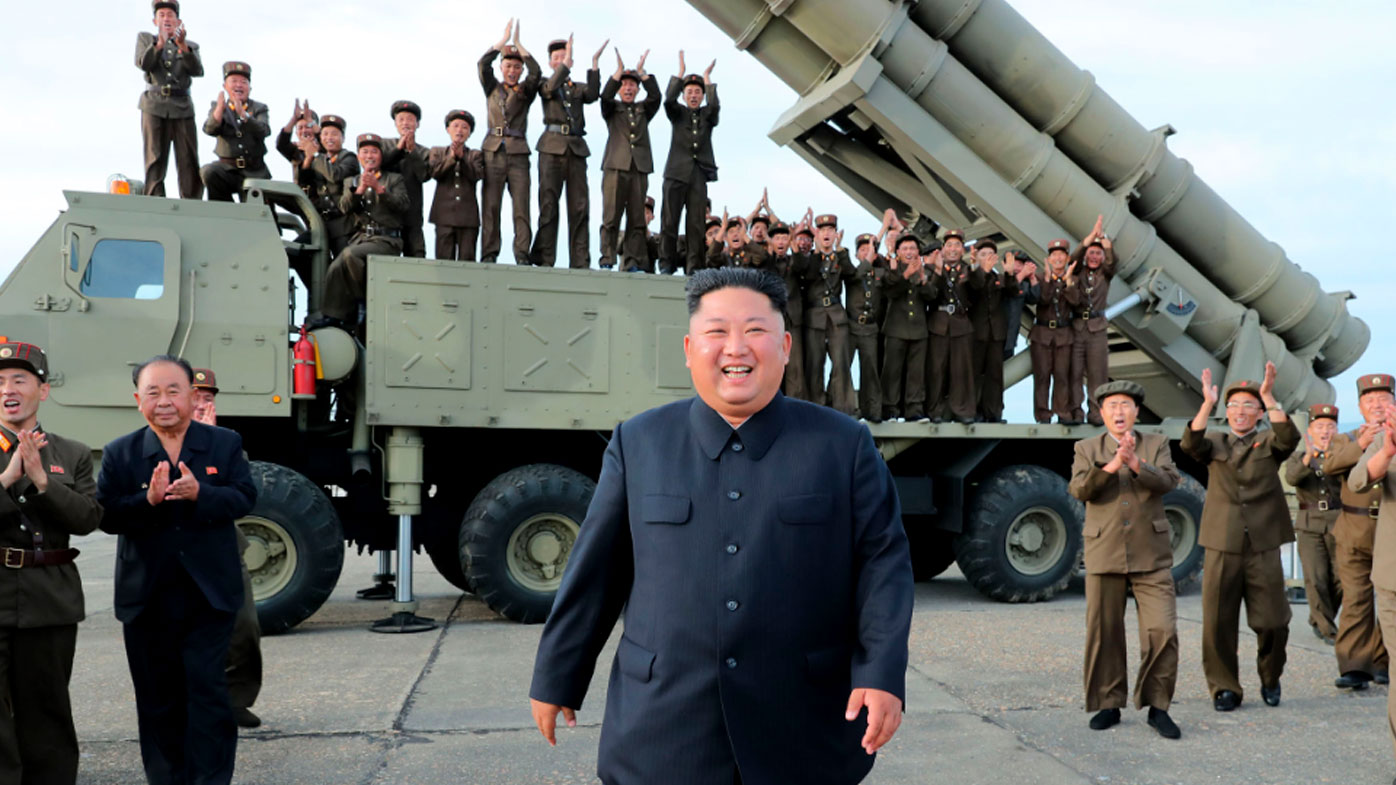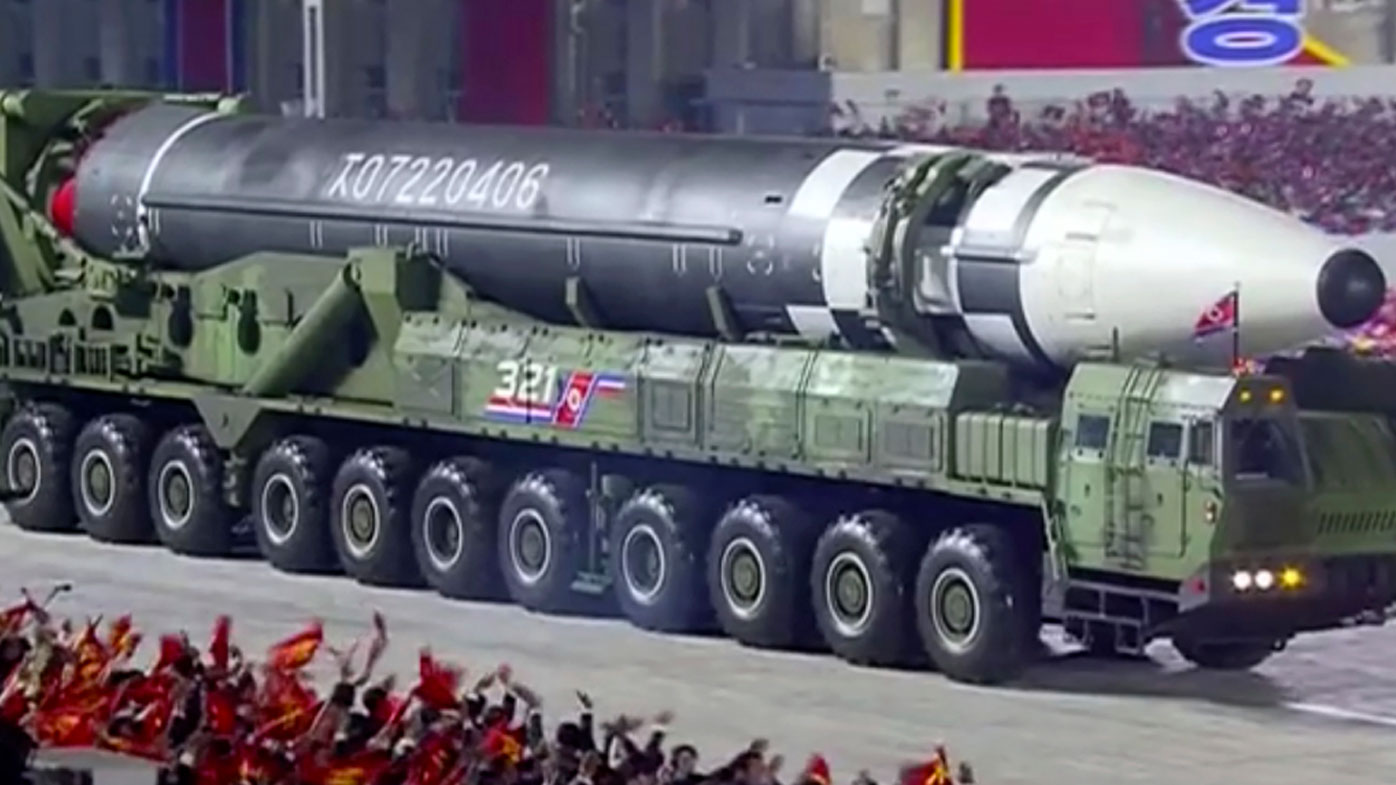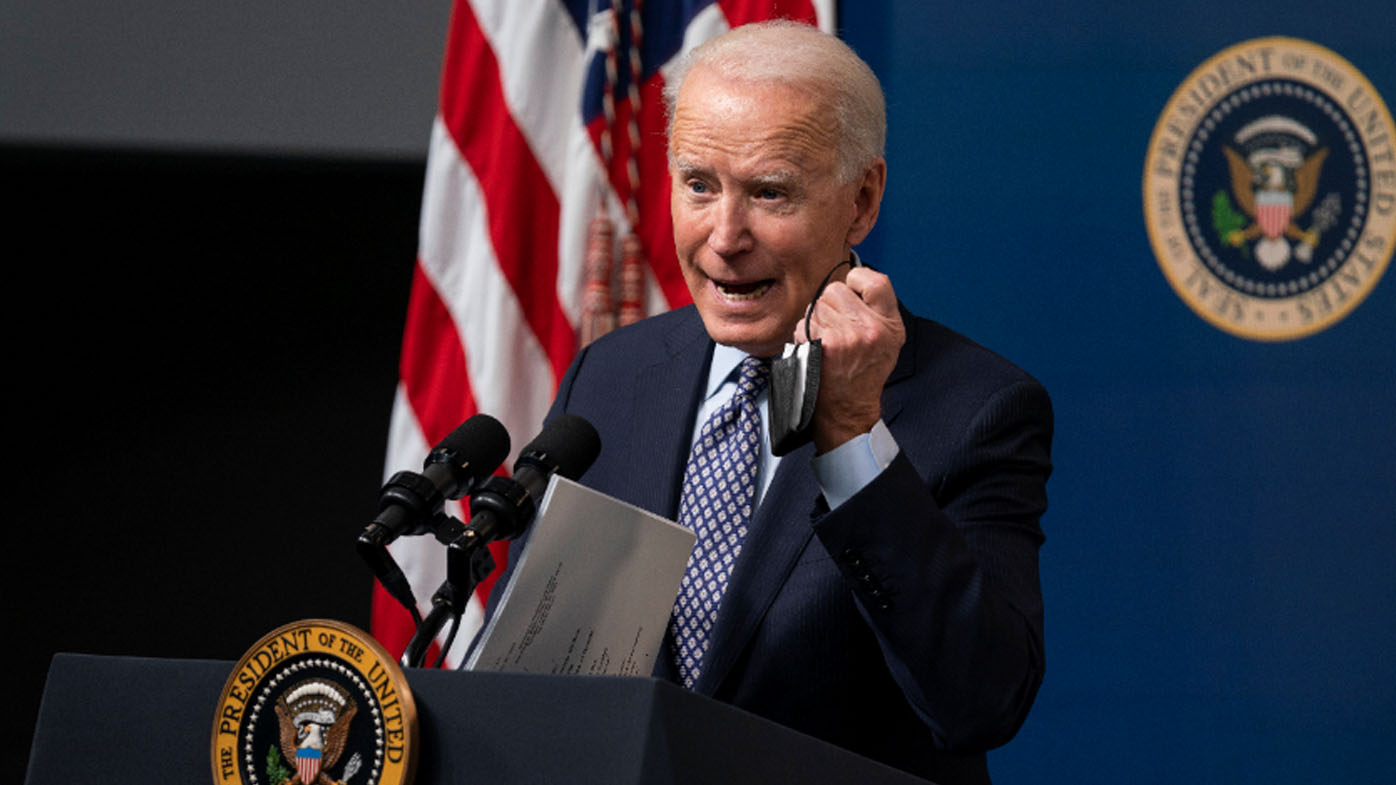North Korea's apparent escalation of its missile testing fits a pattern of calculated pressure aimed at testing US President Joe Biden, a security expert says.
US officials said two ballistic missiles were launched by North Korea today after last weekend's launches of shorter range weapons.
Security expert Malcolm Davis told nine.com.au the missile launches were "sabre-rattling" exercises aimed at testing the US President.
"North Korea was stepping its toes across the line, putting down a marker," Dr Davis said.
READ MORE: North Korea carries out first weapons test since Joe Biden took office

It is not known yet whether today's missile launches were short, medium or long range weapons, such as an intercontinental ballistic missile (ICBM).
The US military and intelligence community is still analysing data from the test launch to determine what kind of missile was fired and how far it went.
Despite the missile launches, Dr Davis said Mr Biden is unlikely to waver from his refusal to negotiate with North Korean leader Kim Jong-un.
The US President brushed off the weekend missile tests as "business as usual".
"There's no new wrinkle in what they did," Mr Biden said.
READ MORE: North Korea sets up big security headache for Biden

But the latest report of the launch of longer range and more potent missiles may warrant a stronger response.
Mr Kim and former US President Donald Trump met three times since 2018 for talks about North Korea's nuclear weapons without concrete results.
But Dr Davis said Mr Biden - who has described Mr Kim as a "thug" - will follow a different course.
Any negotiations would likely be at a lower diplomatic level.
"Biden knows that sitting down with Kim was foolish," Dr Davis said.
"The talks achieved nothing and gave credibility to a brutal regime.
"Biden knows that Kim is not going to his nuclear weapons program."
READ MORE: Kim Jong-un cannot denuclearise, former North Korean diplomat says

Instead the US will focus its response to strengthening its nuclear deterrence against any North Korean aggression.
"They could strengthen US extended nuclear deterrence security guarantees to both Seoul and Tokyo," he said.
"Such a step would enhance US allies' confidence in Washington's commitment to meet the challenge posed by North Korea's nuclear arsenal."
